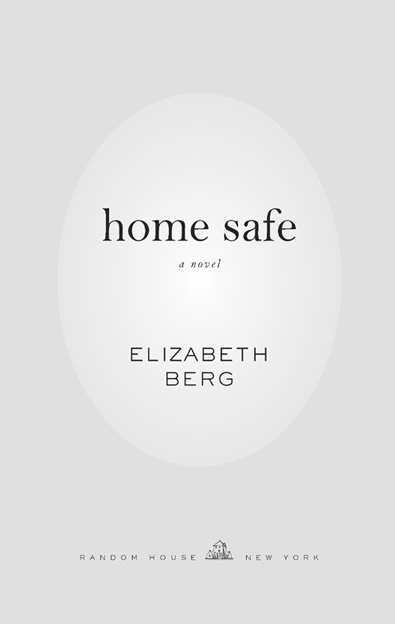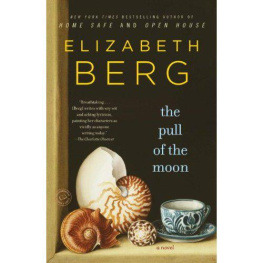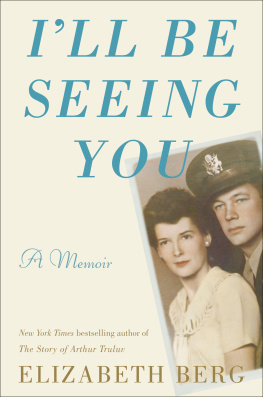Elizabeth Berg - Home Safe
Here you can read online Elizabeth Berg - Home Safe full text of the book (entire story) in english for free. Download pdf and epub, get meaning, cover and reviews about this ebook. year: 2009, publisher: Random House, genre: Humor. Description of the work, (preface) as well as reviews are available. Best literature library LitArk.com created for fans of good reading and offers a wide selection of genres:
Romance novel
Science fiction
Adventure
Detective
Science
History
Home and family
Prose
Art
Politics
Computer
Non-fiction
Religion
Business
Children
Humor
Choose a favorite category and find really read worthwhile books. Enjoy immersion in the world of imagination, feel the emotions of the characters or learn something new for yourself, make an fascinating discovery.

- Book:Home Safe
- Author:
- Publisher:Random House
- Genre:
- Year:2009
- Rating:5 / 5
- Favourites:Add to favourites
- Your mark:
- 100
- 1
- 2
- 3
- 4
- 5
Home Safe: summary, description and annotation
We offer to read an annotation, description, summary or preface (depends on what the author of the book "Home Safe" wrote himself). If you haven't found the necessary information about the book — write in the comments, we will try to find it.
Home Safe — read online for free the complete book (whole text) full work
Below is the text of the book, divided by pages. System saving the place of the last page read, allows you to conveniently read the book "Home Safe" online for free, without having to search again every time where you left off. Put a bookmark, and you can go to the page where you finished reading at any time.
Font size:
Interval:
Bookmark:

A LSO BY E LIZABETH B ERG
The Day I Ate Whatever I Wanted
Dream When You're Feeling Blue
The Handmaid and the Carpenter
We Are All Welcome Here
The Year of Pleasures
The Art of Mending
Say When
True to Form
Ordinary Life: Stories
Never Change
Open House
Escaping into the Open: The Art of Writing True
Until the Real Thing Comes Along
What We Keep
Joy School
The Pull of the Moon
Range of Motion
Talk Before Sleep
Durable Goods
Family Traditions

for Jennifer Sarene Berg
and
Julie Marin Krintzman
One Saturday when she was nine years old, Helen Ames went into the basement, sat at the card table her mother used for folding laundry, and began writing. She wrote about the flimsy heads of dandelions gone to seed, about the voices of her parents drifting from their bedroom at night, about the nest of coins she once found in a field of grass; then, finally, about the drowning death of one of her fourth-grade classmates in a pond thick with algae. She had witnessed the attempted resuscitation, and certain images would not leave her: the boy's striped shirt, his waterlogged pants, the yellow-green gunk in his hair, the Davy Crockett watch on his wrist still ticking. From her vantage point, Helen could see the second hand going round and round, measuring something different, now, than the hours of a boy's life. She saw the mothera head of closely cropped, dark hair that reminded Helen of a chickadee's capshe saw that mother weeping, raging, wrapped in a blanket the medics had provided in an effort to stop her shaking. She saw the mother's friend weeping with her, saying over and over in a voice coarsened by grief, You still have Sarah. You still have Sarah. Helen knew that what the mother would also haveequally, if not morewould be the loss of her son. For weeks, she had obsessed about the drowning, trying to understand the how and the why of it in order to dislodge the knot of pain it had created in her chest. Nothing helped, not her parents' explanations, not prayer, not the diversion of friends and play. Nothing helped until the day she took a tablet and pencil into the basement and moved the event out of her and onto paper, where it was reshaped into a kind of simple equation: loss equaled the need to love again, more. With this, she was given peace.
M OM , H ELEN'S DAUGHTER SAYS . M OM . M OM . M OM . D ON ' T .
Helen leans into the mirror to pick a clot of mascara off her lashes. This mascara is too old. She'll buy a new tube today, now that she intends to be a regular working woman, someone who, rather than making a thirty-foot commute from bedroom to study and working in her pajamas, actually dresses up and goes out of her house to be among other human beings. She'll buy some anti-aging mascara, surely they've come up with that by now. What she really needs is an antiaging mirror.
It's not cute, what you're doing, Tessa says. It's not funky or cool or fun. You'll hate it.
Helen turns to face her. How do you know? You're talking about yourself. Just because you didn't like working there doesn't mean I won't.
Mom. Imagine yourself folding the same sweater one hundred times a day. Imagine saying, Welcome to Anthropologie! to hostile customers who only want to be left alone.
I hardly think they'll be hostile.
Tessa waves her hand as though flicking away the blackfly of her mother's ignorance. You've never worked retail. You have no idea how rude people can be. Or how weird.
Helen refrains from answering, Expect the worst, and you'll get it! She applies a thin coat of coral-colored lipstick.
Too yellow for your complexion, Tessa says. She is the beauty editor at an online magazine; she makes pronouncements like this with some regularity.
You gave it to me!
I know, but it's too yellow for your complexion. Throw it out. I'll get you more red tones.
Helen looks at the tube. I don't want to throw it out. I'll donate it somewhere.
Mom. Mom. It's used.
Well, then, I'll give it to Grandma. Helen regards herself in the mirrror. She sees that Tessa is right about the color of the lipstick on her. She wipes it off and puts on a pinkish shade. Then she walks to the front hall closet to get her coat.
This is going to be a complete waste of your time, Tessa says. One eyebrow is arched, and her head is tilted in the I can't wait to say I told you so position.
The operative word being your.
What?
It's my time. I can waste it if I want to. And anyway, it won't be a waste. I need a change of pace.
Tessa puts on her coat. She does not button it, and Helen does not tell her to. As she is frequently reminded, her daughter is twenty-seven years old. Still, it's November and cold outside, an insinuating dampness in the air. Tessa does wrap her muffler securely around her throat, Helen is happy to see.
You aren't going to listen to me no matter what I say, Tessa says. You're going to go down there and apply and they'll hire you because they're desperate and then you'll see how disgusting it is to work with spoiled brats and then you'll quit.
Well, Helen says. It will be something to do. Won't it. Do you want a ride back downtown?
Tessa wordlessly exits the house, letting the storm door fall shut instead of holding it open for her mother, who is close behind her. Helen figures the whole way downtown, Tessa will continue to punish her, and she considers for a moment telling her daughter to take the el home, but she won't. It's her daughter. She wonders how many times in her life she's told herself that.
There is silence until they are out of Oak Park and onto the Eisenhower, and then Helen looks over at Tessa, who is pointedly staring straight ahead.
Who's spoiled? she asks, and is gratified to see Tessa smile, then reach over and turn on the CD player. It's over.
Tessa selects Nicole Atkins's Neptune City and turns the volume up. Helen boosts the volume a bit more. On music she and her daughter agree completely. They have even gone to concerts together, and Tessa never seems to be embarrassed by the fact that she is there with her mother. Oftentimes, they will both hear something in a song, and turn to smile at each other like girlfriends. They feel music in the same way; it is a source of pride for Helen. Helen's best friend, Midge, has a daughter Tessa's age, and Amanda plays music that Midge says makes her feel like shooting herself, twice. But Tessa custom-mixes a CD for her mother every Christmas, selecting her own favorite songs of the moment, and it is always Helen's favorite gift.
Helen's husband, Dan, died suddenly eleven months and three days ago, dropping his coffee cup and sliding almost noiselessly out of his kitchen chair and onto the floor. Helen, who'd been standing at the sink, still feels guilty about yelling at him for breaking his cup before she turned to see him sprawled on his back, his eyes wide open and startled-looking. She believes the last thing Dan felt was surprise, and to her way of thinking, it wasn't a bad way to go. The bad part is he left her here without him, ignorant of oh, everything.
Font size:
Interval:
Bookmark:
Similar books «Home Safe»
Look at similar books to Home Safe. We have selected literature similar in name and meaning in the hope of providing readers with more options to find new, interesting, not yet read works.
Discussion, reviews of the book Home Safe and just readers' own opinions. Leave your comments, write what you think about the work, its meaning or the main characters. Specify what exactly you liked and what you didn't like, and why you think so.





